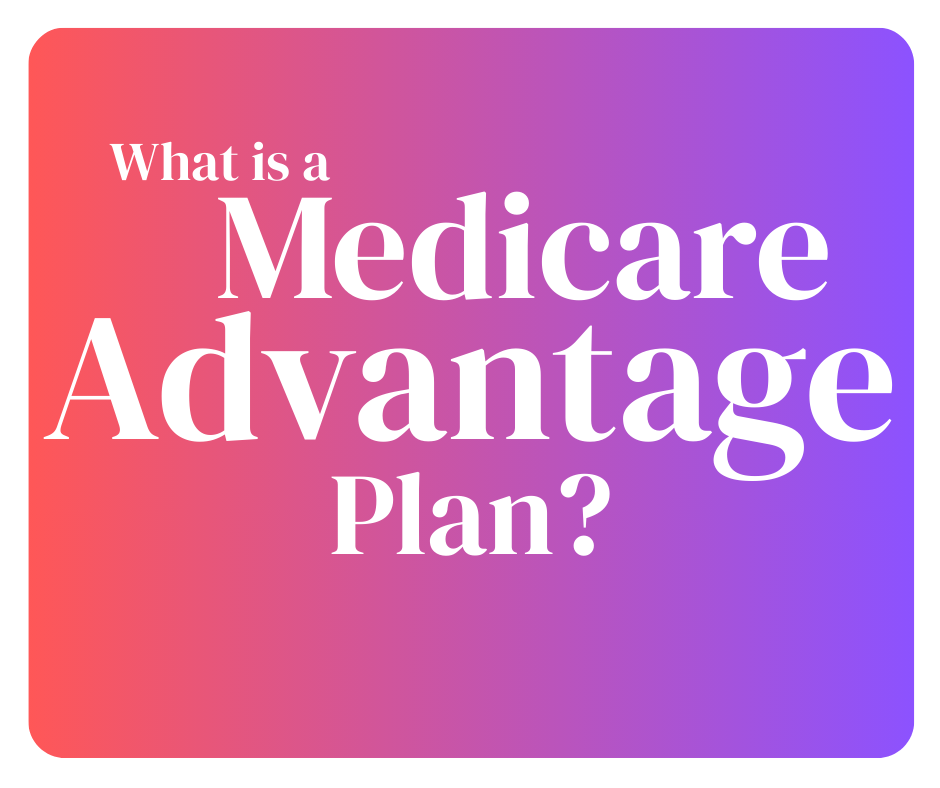
Medicare Advantage: Part C
We’ve already talked about Original Medicare containing Medicare Parts A & B, but there is also a Part C (and a Part D) called a Medicare Advantage Plan. What is Part C? And what are the “advantages” like the name implies?
A Medicare Advantage Plan is run by a private insurance company that takes care of your Part A and Part B coverage in one plan. Most of these plans include prescription coverage, and often they include benefits to cover dental care, vision, and hearing needs. Most importantly, these plans include an annual out-of-pocket limit to help protect your finances. If your personal Medicare costs reach that amount in a single year, the plan will take over the remaining Medicare costs for the year. So in other words, this plan like Original Medicare with bonuses. Let’s dive into the specifics.
Top Advantages of Medicare Advantage
There are a few strong benefits to a Medicare Advantage Plan. First is the cost savings. Premiums in an Advantage Plan tend to be much lower than a Medicare Supplement Plan. For someone on a limited fixed income, this is pretty important. Also, because dental/vision/hearing benefits are usually included within the plan, this saves money from additional insurance plans or service costs. Along with these savings is the out-of-pocket cap mentioned earlier to protect your personal finances.
Another advantage is that in addition to dental/vision/hearing benefits, these plans often throw in other “extras” to keep you healthy. Many offer a free gym membership. Some offer rewards programs for completing healthy activities, like going in for your annual wellness visit. Some offer over-the-counter funds. These extras are intended to help you lead a healthier lifestyle and take a stronger role in your own health management.
And finally, the other main advantage is that these Advantage Plans typically cover prescription drugs. This means that even if you have very few or no prescriptions, you can avoid the late penalty that is applied to people who skip drug coverage and then sign up later in life. If you already have drug coverage (like through the VA), there are plans you can choose from that don’t have prescription coverage and possibly save a little money.
Disadvantages of Medicare Advantage
Like all options in life, the Advantage option comes with some drawbacks. The first and most obvious is that you are bound to a network. You choose a Primary Care Physician (PCP) who acts within a specific network of private insurance. You don’t have the freedom to see any doctor who participates in Medicare. Some plans allow you to go outside the network if you are willing to pay a little more. Your PCP will be your go-to for regular check-ups and referrals for specialists. Fortunately, most of us are familiar with this restriction since employer health coverage tends to work in the same way.
The second drawback to an Advantage Plan is that you are responsible for paying copays and coinsurance for your use of the plan. For someone who needs to go into the doctor a lot, this could be very burdensome. Also, even though Advantage Plans tend to save people money, the max out-of-pocket limit tends to be higher than a single year of Medicare Supplement premium payments. This means that on a healthy year you will be saving money; on a high-needs year, you may be spending more.
The last disadvantage is the volatility of the market. Medicare Advantage Plans tend to have much more fluctuation than Supplement Plans. Each year private insurance companies evaluate changes in the market and adjust plans for the following year as needed. Sometimes changes are minimal; sometimes changes are major; and sometimes plans are even removed from the market. There are options when these things happen, but you have to keep an eye out. A trusted broker advisor (like me!) can offer valuable insights to make changes to your plan from October 15 – December 7 (aka AEP) to go into effect at the beginning of the following year.
Summary
Just like the Supplement side of things, Medicare Advantage has its pros and cons. There is no perfect option, but there are a lot of good ones. Hopefully this information gives you what you need to make an informed decision on how YOU want to proceed with your health coverage.
As always, please call me to clear up any confusion you have. I’m here to help!